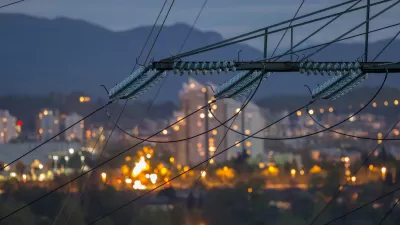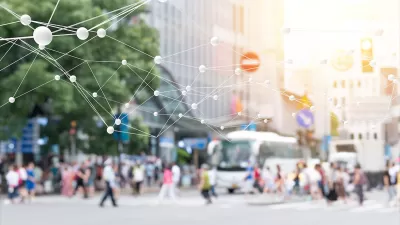Machine learning and AI can transform the way transit agencies operate and make service faster and more comfortable for users.

In a piece for RT Insights, Syed Mansoor Pasha outlines the various ways artificial intelligence and machine learning are transforming public transit and helping transit agencies better understand their riders’ needs and how to provide more efficient service.
According to Pasha, “This technological leap is enabling public transit systems to adapt intelligently to individual preferences and real-time demands, heralding a new era of dynamic and responsive transportation.” In London, Project Luna uses AI to provide transit information to people with hearing impairments, offering digital information in British Sign Language.
Using AI, agencies can perform more accurate passenger counting so they can effectively manage their fleet and staffing. AI can also help detect anomalies in system operations more quickly.
As Pasha points out, “The backbone of these AI technologies in public transit is onboard internet connectivity, which facilitates real-time data transfer and enables seamless communication both within the vehicle and to and from the cloud.” On-board connectivity can reduce the amount of energy needed to process data and essentially turn trains into “rolling data centers.”
FULL STORY: Transforming Public Transit with AI and Machine Learning

Manufactured Crisis: Losing the Nation’s Largest Source of Unsubsidized Affordable Housing
Manufactured housing communities have long been an affordable housing option for millions of people living in the U.S., but that affordability is disappearing rapidly. How did we get here?

Americans May Be Stuck — But Why?
Americans are moving a lot less than they once did, and that is a problem. While Yoni Applebaum, in his highly-publicized article Stuck, gets the reasons badly wrong, it's still important to ask: why are we moving so much less than before?

Using Old Oil and Gas Wells for Green Energy Storage
Penn State researchers have found that repurposing abandoned oil and gas wells for geothermal-assisted compressed-air energy storage can boost efficiency, reduce environmental risks, and support clean energy and job transitions.

Minneapolis Bans Rent-Setting Software
Four cities have enacted restrictions on algorithmic software that can inflate rent costs.

Oakland to Add 244 New EV Chargers
Oakland plans to launch its new charging network at eight locations by the end of 2025.

Jane Goodall Inspires with Message of Hope, Resilience, and Environmental Action
Speaking in Pasadena, Jane Goodall offered a hopeful and inspirational message, urging global compassion, environmental responsibility, and the power of individual action to shape a better future.
Urban Design for Planners 1: Software Tools
This six-course series explores essential urban design concepts using open source software and equips planners with the tools they need to participate fully in the urban design process.
Planning for Universal Design
Learn the tools for implementing Universal Design in planning regulations.
Heyer Gruel & Associates PA
City of Moreno Valley
Institute for Housing and Urban Development Studies (IHS)
City of Grandview
Harvard GSD Executive Education
Salt Lake City
NYU Wagner Graduate School of Public Service
City of Cambridge, Maryland





























